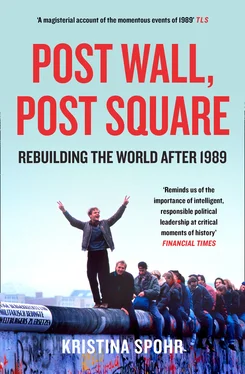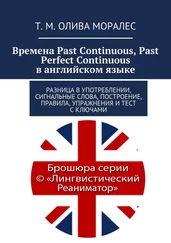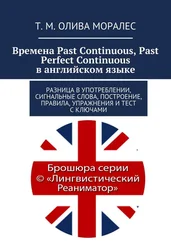Admitting that he had ‘no finished blueprint’ in his pocket for the Common European Home, he reminded his listeners of the work of the 1975 Helsinki Conference on Security and Cooperation in Europe (CSCE), when thirty-five nations had agreed common principles and values. It was now time, he declared, for the present generations of leaders in Europe and North America ‘to discuss, in addition to the most immediate issues, how they contemplate future stages of progress towards a European Community of the twenty-first century’. At the cornerstone of Helsinki 1975 were the two superpowers and, Gorbachev believed, that situation had not changed. ‘The realities of today and the prospects for the foreseeable future are obvious: the Soviet Union and the United States are a natural part of the European international and political structure. Their involvement in its evolution is not only justified, but also historically conditioned. No other approach is acceptable.’[56]
Gorbachev returned home via Romania, where he led a Warsaw Pact meeting that formally and publicly renounced the Brezhnev Doctrine – in other words cementing his statements in New York and more recently Strasbourg that force would not be used to control the development of individual socialist states. Combined with Gorbachev’s PR offensive of drastic, unilateral Soviet force reductions in Eastern Europe and his express desire for the Warsaw Pact states to make progress with NATO countries on producing a conventional arms accord by 1992,[57] this was another deeply worrying moment for Honecker and the other hardliners in the bloc – Ceaușescu and Miloš Jakeš of Czechoslovakia – especially considering that they had used the summit to lobby vehemently for Warsaw Pact military intervention in Hungary. Champions of repression and intransigence, they must have felt that the Kremlin was abandoning them.[58] Gorbachev certainly left his fellow communist leaders in no doubt what he thought about the dinosaurs among them. He stressed that ‘new changes in the party and in the economy are needed … Even V. I. Lenin said that new policies need new people. And this does not depend on subjective wishes any more. The very process of democratisation demands it.’[59]
The Soviet leader left Bucharest on 9 July, just as the president of the United States was arriving in Warsaw. Each superpower was putting down markers on a Europe in turmoil.
*
Bush had been alarmed by the Soviet leader’s peace offensive around Europe, not least because America’s NATO allies appeared to be in the grip of some kind of ‘Gorbymania’ which made them susceptible to Soviet blandishments about arms reduction. His own European tour – to Poland and Hungary ahead of the G7 meeting in France – had been planned in May but it was now all the more imperative, in order to ‘offset the appeal’ of Gorbachev’s message.[60]
Indeed, before even setting off for Europe, Bush made a point of quickly and strongly rebuffing Gorbachev’s Paris proposals: ‘I see no reason to stand here and try to change a collective decision taken by NATO,’ he declared, and reiterated that there would be no talks on SNFs until agreement had been reached in Vienna on reducing conventional forces in Europe, an area in which the USSR was vastly superior. He wrote sarcastically in his memoirs about Gorbachev’s attempt to persuade the West that it ‘need not wait for concrete actions by the Soviet Union before lowering its guard and military preparedness’.[61]
That said, Bush did not want his European trip to be about scoring points off Gorbachev. The president had already laid down his own ideological principles in the spring and, far from wishing to mount a ‘crusade’, he was sensitive both to the volatile situation in Eastern Europe and to Gorbachev’s delicate political position at home. He did not intend to ‘back off’ from his own values of freedom and democracy but was acutely conscious that ‘hot rhetoric would needlessly antagonise the militant elements within the Soviet Union and the Pact’. He even worried about the impact of his own presence, regardless of what he said. While wanting to be what he called a ‘responsible catalyst, where possible, for democratic change in Eastern Europe’, he did not want to be a stimulus for unrest: ‘If massive crowds gathered, intent on showing their opposition to Soviet dominance, things could get out of control. An enthusiastic reception could erupt into a violent riot.’ Although he and Gorbachev were jockeying for position, the two leaders agreed on the importance of stability within a bloc that was in flux.[62]
Bush and his entourage arrived at Warsaw’s military airport around 10 p.m. on 9 July. It was a humid summer evening as they descended from Air Force One to be greeted by a large official welcoming party. Jaruzelski was in the forefront but, for the first time ever during a state visit, representatives of Solidarity were also present. No spectators were allowed near the plane, but en route from the airport to the government guest house in the city centre, where George and Barbara Bush would be staying, thousands of people lined the streets, three or four deep, waving flags and giving the Solidarity ‘V’ for victory symbol. Others leant from the balconies of their apartments, throwing down flowers onto the passing motorcade. The mood, contrary to Bush’s fears, was that of a friendly welcome, not a political demonstration.[63] In fact, this was typical of the whole trip. There were no massed throngs cheering in adulation – nothing like Pope John Paul II in 1979 or Kennedy in Berlin in 1963. The public mood seemed uncertain, characterised by what American journalist Maureen Dowd called a mixture of ‘urgency and tentativeness’ as Poles contemplated a strange future in which the ‘jailors’ and those they had jailed would now have to try to govern together.[64]
Bush and Jaruzelski managed to turn their scheduled ‘ten-minute cup of coffee’ in the morning of 10 July into an extended and frank conversation that lasted almost an hour. Their tour d’horizon spanned Polish politics and economic reforms, US financial aid, superpower relations, the German question and Bush’s vision of ‘a united Europe without foreign troops’.[65] The president’s meeting with Prime Minister Mieczysław Rakowski – a veteran communist journalist until he was suddenly appointed premier the previous September – was similarly businesslike and also opened up some of the complexities underlying the glib word ‘reform’. Poland’s ‘chief problem’, Rakowski explained, was to ‘introduce reforms while avoiding serious unrest’. Privatisation would be an important step but he warned it would take ‘a full generation’ before Poles accepted the Western-style ‘stratification of wealth’ that would necessarily follow. What Polish people did not need, he added, was an American ‘blank check’ – in other words ‘untied credits’ from the West. Instead he hoped Bush could encourage the World Bank and IMF to display flexibility about the staggering of debt repayments. Rakowski conceded his party’s ‘economic errors of the past’ but insisted that these ‘constitute a closed chapter’ and that Polish leaders now understood the need to turn the page. Bush promised that the West would help but stated that he had no intention of supporting the radical, indeed frankly utopian, demands by the labour unions that would ‘break the Treasury’. In that way Bush stood closer to the aims of Polish communist reformers including Jaruzelski and Rakowski, who sought managed economic cooperation with the USA and the West, than to Wałęsa and the opposition, who wanted immediate and large-scale direct aid to ease the pain of transition and thus maintain popular support.[66]
The president did talk about economic aid when he addressed the Polish parliament on the afternoon of the 10th, but what was grandly described as his ‘Six-Point Plan’ received a mixed reception. To be sure, the need was clear: Poland’s debt to Western creditors in summer 1989 stood at around $40 billion, with the country’s growth rate barely above 1% while inflation was running at almost 60%. But although Bush promised to ask the US Congress for a $100 million enterprise fund to invigorate Poland’s private sector, he hoped that the rest of the aid package he proposed ($325 million in fresh loans and a debt rescheduling of $5 billion) would come from the World Bank, the Paris Club, the G7 and other Western institutions.[67] It was all a bit vague and certainly nothing like the $10 billion that Wałęsa, for one, had requested. Nor did it even come close to the $740 million in aid that Reagan, at the height of the Cold War, had offered the communist government before martial law was declared in December 1981.[68] That, of course, was prior to the USA’s foreign debt going through the roof as a result of Reaganomics – from $500 billion in 1981 to $1.7 trillion in 1989.[69] Certainly the public reaction in Poland was almost openly critical. ‘Very little concrete material’, a government spokesman complained, and ‘too much repeated emphasis on the need for further sacrifices by the Polish people’. So much for popular hopes in Poland of a ‘mini-Marshall Plan’. While Bush saw himself as being ‘prudent’, Scowcroft told journalists defensively that the value of the aid was ‘political and psychological’ as much as ‘substantive’.[70]
Читать дальше












